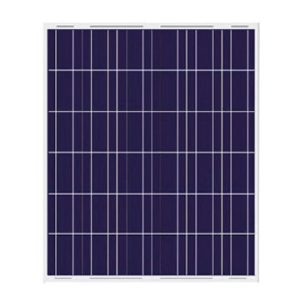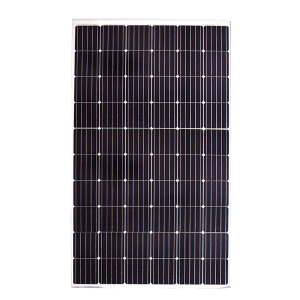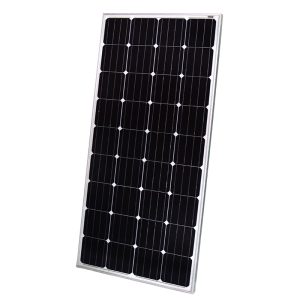Outdoor lighting is essential for visibility, safety, and security in areas like parking lots, pathways, parks, and rural roads. Traditional lighting options like high-pressure sodium or metal halide lights require connection to the electrical grid. But grid expansion is expensive, and in remote areas, connecting to the grid may not be feasible.
This is where innovative solar street lighting powered by photovoltaic (PV) panels offers an economical, eco-friendly solution. With recent advances in solar LED technology, modern solar street lights deliver powerful illumination without the need for any wires or external electricity supply.
In this comprehensive guide, we will cover:
- Key features and specifications of 120-watt solar street lights
- Benefits over conventional street lighting
- Ideal applications
- latest innovations in solar LED street lights
Introduction to 120W Solar Street Lights
The 120-watt solar street light is designed to provide bright, energy-efficient outdoor illumination without access to an electrical grid. The complete system consists of:
- One or more photovoltaic solar panels to charge the batteries during daylight hours
- LED luminaire with power-efficient light-emitting diodes
- Rechargeable lithium-ion battery to store energy
- Intelligent controller to manage the energy flow
- Durable pole and mounting hardware
During the day, the solar panels convert sunlight into DC electric current to charge the batteries. After sundown, the charged batteries supply power to the LED luminaire. The intelligent controller regulates this flow of energy between panels, batteries, and lights.
Power Output and Brightness
With a power rating of 120 watts, these solar street lights can deliver 9,000 to 12,000 lumens of brightness. Lumens measure the total quantity of visible light emitted by a source. For reference, a standard 100W incandescent bulb emits about 1,600 lumens.
So a 120-watt solar street light can deliver over 7 times more brightness than a regular bulb! This high-intensity illumination makes solar street lights perfect for lighting up large outdoor areas.
Energy Independence
The built-in solar panel and battery storage provide complete energy independence. 120W solar street lights can operate for cloudy periods of up to 5 days on battery reserve alone. This makes them ideal for remote locations where access to grid electricity is limited.
Once the weather clears, the PV panels automatically recharge the batteries using free renewable solar energy. This cycle repeats automatically, eliminating any manual intervention.
Durability and Lifespan
Built using a corrosion-resistant aluminum alloy housing, 120-watt solar street lights can withstand harsh outdoor conditions. The tempered glass solar panels and integrated LEDs are also highly durable.
With minimal maintenance, these rugged lights provide up to 5 years of reliable operation. The integrated lithium-ion batteries used in solar street lights also offer close to 2,000 charge cycles over their usable lifespan.
Key Applications and Benefits
Modern 120-watt solar LED street lights deliver powerful, eco-friendly illumination for numerous applications, including:
Parking Lots
Bright solar-powered lighting improves visibility and safety in parking areas. It also adds to the aesthetic ambience.
Pathways and Parks
Guide visitors and enhance security along garden pathways, walking trails, and recreation areas after dark.
Perimeter Security
Strategically placed solar street lights deter intruders and illuminate the perimeter of properties.
Rural and Remote Areas
Provide reliable lighting in locations without access to electrical grids including rural roads, farms and off-grid settlements.
Urban and Residential Areas
Solar lights installed on internal streets and lanes can significantly reduce municipal energy consumption and costs.
Emergency or Temporary Lighting
Quickly deploy solar lighting for natural disaster relief or temporary projects where rapid setup is required.
Compared to conventional grid-powered lighting, key benefits of 120 watt solar street lights include:
- Lower energy costs since the sun provides free renewable electricity
- Reduced maintenance with no wires, external connections or light bulb replacements
- Elimination of trenching costs for electrical cables in remote or difficult to access locations
- Minimal site disruption during installation compared to conventional street lights
- Sustainability through the use of renewable solar energy and lower carbon footprint
- Enhanced safety and security with powerful, reliable illumination
With solar LED technology advancing rapidly, 120 watt solar street lights can deliver all the benefits of conventional lighting without the infrastructure costs and limitations.
Features and Specifications to Look For
When selecting a solar powered street light, check that it meets your performance requirements in terms of brightness, backup days and physical design.
Here are some key features and specifications to consider:
Solar Panel Wattage
The panel wattage determines charging capacity. 120 to 200 watt solar panels work well for 120W street lights. Higher wattage increases charging speed.
Lumens
Select lights with 9,000 to 12,000 lumens for bright illumination across large outdoor areas.
LED Efficacy
Look for energy efficient LED chips providing 100+ lumens per watt. This maximizes light output per watt of power.
Battery Capacity
Larger batteries extend backup days during inclement weather. 100 to 200 Ah lithium-ion batteries provide 4 to 7 days of autonomy.
Pole Height
Standard pole heights are 12 to 15 feet but 20 or 30 foot poles suit some applications.
Adjustability
Adjustable solar panels and light fixtures allow optimizing the angle to maximize solar exposure and illumination area.
Materials
Durable anodized aluminum and stainless steel resist corrosion while tempered glass protects the PV panels.
Remote Monitoring
Integrated sensors monitor system performance metrics like battery status. This allows remote diagnostics.
Mobile Connectivity
GSM/GPRS connectivity enables remote control of lighting parameters from a desktop or smartphone app.
Warranty
Reputable manufacturers offer warranties against defects:
- 10 years on solar panels
- 5 years on LED lights and batteries
- 2 years on electronic components
Carefully evaluating these specifications will help select the most suitable solar street lighting system for a given application and budget.
Cost Savings Over Time
While the upfront cost of solar street lighting is higher than conventional options, the long term savings are substantial. When accounting for electricity, maintenance and replacement costs over their lifespan, solar lights offer over 50% savings compared to conventional street lights.
For example, 120 watt solar street lights with lithium-ion batteries have an expected lifespan of 5 years. At a cost of $500 per light, over 5 years the amortized cost is $100 per year.
In comparison, a basic 120W HPS street light costs around $250 but consumes almost $100 per year in electricity alone, not including maintenance and replacement costs.
So over 5 years, each solar street light saves $500 in energy and maintenance expenses for a payback of just 2-3 years. And at the end of 5 years, the solar lights keep working with just battery replacement while HPS bulbs and ballasts need complete replacement.
With smart controls, mobile connectivity and advanced energy management, savings from solar street lighting continue to improve. This makes them an increasingly cost effective outdoor lighting solution.
Recent Advances in Solar LED Street Lighting
The solar LED lighting segment has seen rapid innovation in recent years with products delivering more features at lower price points. Some recent advances making this possible include:
Improved Battery Technology
Lithium-ion batteries with advanced power management ICs enable more backup capacity in smaller, lighter battery packs.
Efficient LEDs
New LED materials and chip architectures optimize optical efficiency – enhancing brightness while reducing power consumption.
MPPT Charge Controllers
Maximum power point tracking technology squeezes every ounce of power from solar panels.
Sensor Integration
Built-in sensors monitor system health parameters like battery voltage and ambient light conditions.
Smart Lighting Controls
Microprocessors and wireless connectivity allow remote monitoring and control of solar street lights.
Energy Management Algorithms
Sophisticated algorithms regulate energy consumption across day-night cycles – reducing waste and improving ROI.
These improvements translate into solar street lighting systems capable of delivering more light, using less power over longer intervals – all at lower costs.
Conclusion
Modern 120 watt solar street lights offer an economical, sustainable outdoor lighting solution without the limitations of grid connectivity. Powered by PV panels and lithium-ion batteries, they provide reliable, powerful illumination year after year with minimal maintenance.
With the latest solar LED technology, 120W solar lights offer 9,000+ lumens of brightness at over 100 lumens per Watt efficacy. Integrated sensors, smart controls and energy management algorithms further optimize efficiency and extend autonomy.
Whether lighting up rural lanes, perimeter fences or urban streets, solar street lights deliver unmatched benefits in terms of energy savings and fast ROI. And with rapid advances in materials, batteries and electronics, 120W solar street lighting is poised to completely transform off-grid and grid-connected outdoor illumination.



